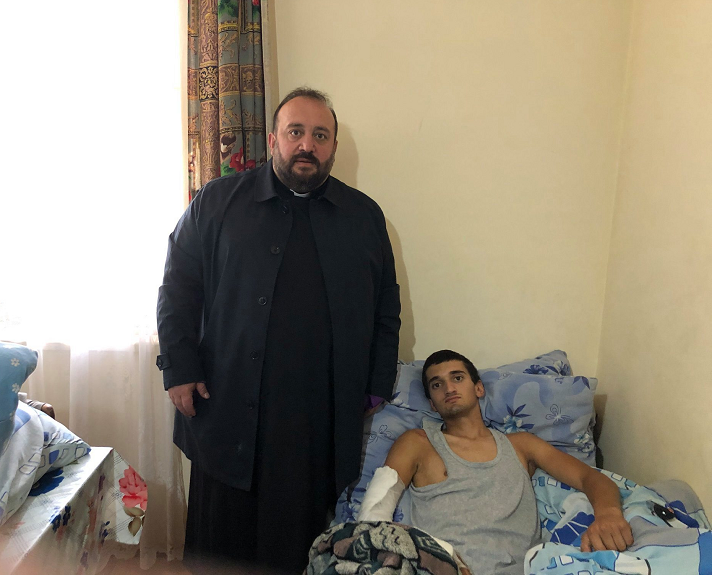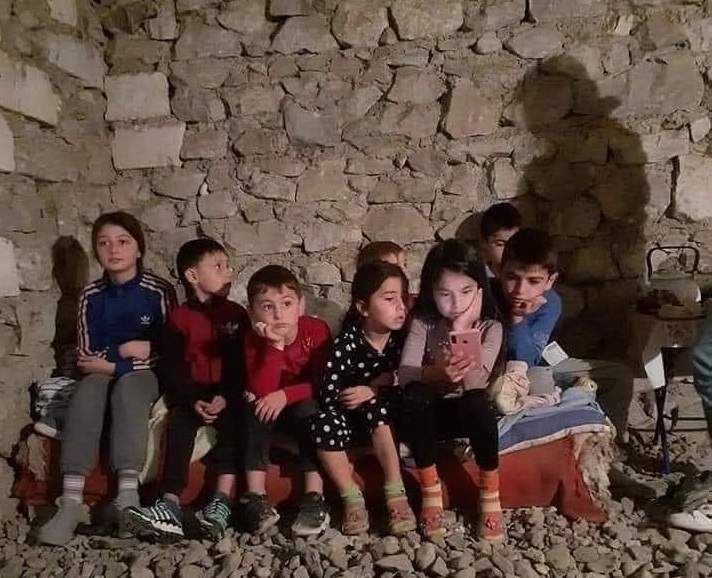There’s a cafe near my residence in London where I go now and then to have coffee. I got to know a Ukrainian lady who worked there because both of us spoke Russian. She would serve me, and we would exchange a few words. When the war broke out in Ukraine, I saw her sitting in the cafe looking distressed. She was constantly checking her phone. I understood what was happening because, along with Armenians around the world, I went through the same experience when the war broke out in Artsakh, also known as Nagorno Karabakh, on 27 September 2020. I understand how conflict in our homeland can have a serious psychological impact even when we are living far away in safety.
In a conflict that lasted 44 days in late 2020, over 5000 young men and women were killed. A ceasefire was brokered by Russia with a trilateral agreement signed on 9 November 2020. By this point almost half the population of Artsakh had been displaced, becoming refugees, and almost half the territory ceded to Azerbaijan.
Since that time Azerbaijan has repeatedly violated the ceasefire. I visited the Syunik Region of Armenia in the spring of 2021 together with the Anglican Bishop of Coventry, The Rt Rev Dr Christopher Cocksworth, to assess the situation. I am thankful to my fellow Bishops from the Church of England who continue to raise concerns in the House of Lords and through other diplomatic channels.


And then on 12 December last year, the situation for Artsakh worsened. Azerbaijan imposed a blockade on it by preventing the passage of people and goods through what’s known as the Lachin Corridor. On 23 April 2023, Azerbaijan formalised its blockade with the establishment of a military checkpoint on the only road in or out of Artsakh, tightening its control over the region. This has put the indigenous Armenian population of Artsakh, some 120,000 people, including 30,000 children, under siege.
‘Christian solidarity’
On 22 February 2023, with the fear of ethnic cleansing growing, the International Court of Justice (ICJ) of the United Nations ordered Azerbaijan to lift the blockade of the Lachin corridor immediately. And in a resolution adopted in March 2023, the European Parliament called on the EU Council members to impose sanctions against Azerbaijani government officials, if the ICJ’s order was not immediately implemented. Recent meetings of the Council for European Churches and the World Council of Churches have added their voices to calls for the conflict to end.
The WCC Central Committee called “on all member churches and ecumenical partners to remain engaged in Christian solidarity with the churches and people of Armenia and Nagorno-Karabakh in their search for a just and sustainable peace.”
I fear while the world is focused on the war in Ukraine, Azerbaijan continues its aggression against Armenians. There will not be lasting peace in the region unless the rights of the people of Artsakh to self-determination are recognised and the Azerbaijani regime is held accountable.
We urgently need the prayers and support of our fellow Christians to prevent ethnic cleansing. We need help to raise awareness and provide humanitarian aid. We need your support in appealing to the UK government and international organisations to prevent further violation of the November 2020 ceasefire. And most pressingly, we need to help to ensure that Azerbaijan immediately removes the military checkpoint installed in the Lachin Corridor to secure the free and safe movement of people and goods to and from Artsakh.
Bishop Hovakim shares the historical context…
Artsakh is historically Armenian land inhabited by ethnic Armenians. As a result of the divide-and-rule policy of the Bolshevik Government of the former Soviet Union, it was given to the administration of Soviet Azerbaijan by Stalin in 1921. It remained an autonomous region in Soviet Azerbaijan until the collapse of the Soviet Union. When the people of Artsakh voted for their Independence on December 10, 1991, they created a new democracy. As a result of their decision to build an independent state Azerbaijani aggression against Artsakh increased, and ethnic cleansing of Armenians spread to cities within Azerbaijan. The first war that had broken out in 1990, ended with ceasefire in 1994. Since then, negotiations have been held under the auspices of the OSCE Minsk group led by USA, France and Russia. Azerbaijan’s military offensive against Artsakh in September 2020 was launched with the support of Turkey, and using mercenaries from the Middle East.
To offer help via the Armenian Church please contact the Primate’s Office.
Learn more about the Diocese of the Armenian Church in the United Kingdom and Ireland.
Main photo: An Armenian Church army chaplain walking with soldiers © Armenian Church in UK and Ireland